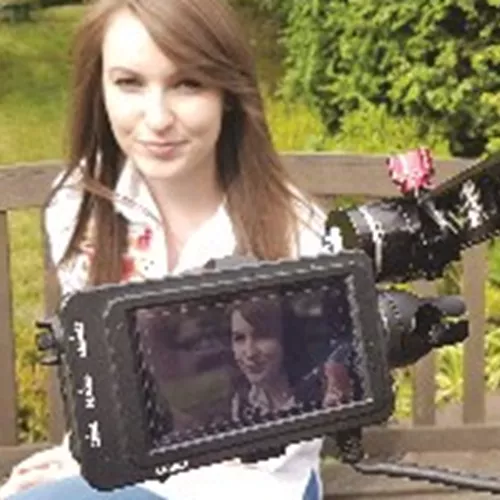Phobias
Find information on phobias, including symptoms, causes and how to access treatment and support. Get tips for helping yourself, plus guidance for friends and family.
View this information as a PDF (new window)
Treatment for phobias
On this page:
- If your phobia prevents you from seeking help
- Talking treatments for phobias
- Hypnotherapy for phobias
- Medication for phobias
To get treatment for your phobia, usually the first place to go is your GP. They can assess you and explain what treatments are available.
There are very few treatment guidelines specific to phobias. The National Institute for Health and Care Excellence (NICE) recommends three main types of treatment for anxiety and panic disorders. These should be included in your options:
- talking treatments
- medication
- self-help advice and information – this includes self-help books, online programmes, support groups or relaxation techniques.
Your GP should explain all your options. They should consider your views before starting any treatment.
Talking treatments for phobias
During a talking treatment, you'll talk to a professional about your thoughts, feelings and behaviour.
Your doctor or mental health professional can explain the options available to you. They can help you find the right talking treatment. Unfortunately, there is often a long waiting list for NHS talking treatments.
For information on how to access them – through the NHS, charities or privately – see our pages on talking treatments.
See our page on phobia self-care for ideas you can try while you're on the waiting list.
Cognitive behavioural therapy
Cognitive behavioural therapy (CBT) aims to:
- identify connections between thoughts, feelings and behaviour
- help develop practical skills to manage any patterns that are causing you problems.
CBT can include a range of techniques when used to treat phobias. It may include exposure therapy (known as desensitisation).
For more information, see our pages on CBT.
Cognitive behavioural therapy changed my life. Through using self-help books, to having professional CBT from my local Community Mental Health Team, I slowly learned how to change my negative thoughts to more realistic ones, and to finally overcome some of my deeply entrenched phobias.
Exposure therapy
Exposure therapy means gradually exposing you to the object or situation you fear. This is carried out in a safe and controlled way.
For example, if you have a phobia of the dentist, in exposure therapy you might:
- read about the dentist
- look at pictures of a dentist’s chair
- sit in the waiting room
- talk to the dentist
- finally sit in the dentist’s chair.
It's important that you fully understand the treatment and feel comfortable with your therapist. You will agree each of the steps in advance. This technique must be carefully managed to avoid causing distress and anxiety.
Through repeated exposure, you may start to feel more control over your phobia. Exposure therapy may even be carried out using virtual reality (VR) tools. However, this type of treatment is largely still in its pilot stage.

VR therapy and me
I remember taking the headset off and starting to cry. I’d made it! It was a true breakthrough.
Hypnotherapy for phobias
Hypnotherapy uses hypnosis to try to change habits or treat certain conditions. Hypnosis involves putting you in a state of deep relaxation in order to access:
- subconscious beliefs
- thoughts
- memories.
These are all factors which may affect the way you act.
Hypnosis might help you to change unwanted thoughts and behaviours. It aims to do this through suggestion and by increasing your self-awareness.
Some people with phobias find hypnotherapy helps relieve their symptoms.
The Complementary and Natural Healthcare Council (CNHC) has a register of hypnotherapists. They are trained to national standard level. To find a hypnotherapist, you can search the CNHC register by therapy type.
See our list of complementary and alternative therapies for more information.
Medication for phobias
If your phobia causes you severe anxiety, medication may be offered. There are currently three types of drugs considered useful in managing anxiety:
These are only available through your GP, not over the counter.
Antidepressants
To treat anxiety, selective serotonin reuptake inhibitor (SSRI) antidepressants are most commonly prescribed. These drugs can be helpful, but may cause side effects like sleep problems for example. Unfortunately, you might find increased anxiety is another possible side effect.
If SSRIs don't work or aren't suitable, you may be offered alternative medication.
For social phobia, you may be offered a reversible monoamine oxidase inhibitor (MAOI) antidepressant. It may be called moclobemide, or Manerix.
Some foods can have a dangerous reaction with MAOI antidepressants. A warning about which foods to avoid is given with the drugs in the Patient Information Leaflet.
For more information, see our pages on antidepressants and our A-Z of antidepressants.
Tranquillisers
To reduce severe anxiety, a benzodiazepine tranquilliser may be offered. Severe anxiety means it has a significant impact on your day-to-day life.
The tranquilliser you may be offered might be called diazepam, or Valium.
Benzodiazepines can be addictive. They should be taken at a low dose, for a short period of time. Preferably they should be a one-off dose and for no longer than four weeks.
See our page on sleeping pills and minor tranquillisers for more information.
Beta-blockers
Beta-blockers are sometimes used to treat the physical symptoms of anxiety, such as:
- a rapid heartbeat
- palpitations (a sudden irregular heartbeat, or flutter)
- tremors (shaking).
You may be offered a beta-blocker called propranolol.
Beta-blockers are not psychiatric drugs, so they don’t reduce psychological symptoms. But they might help in certain situations which trigger your phobia.
Beta-blockers are not addictive. However they can cause side effects such as sleep problems and nightmares. If you decide to stop taking them, slowly reduce the dose. As they affect the heart and blood pressure, you should stop taking them gradually.
See our pages about coming off medication for more information.
This information was published in February 2021. We will revise it in 2024.
References and bibliography available on request.
If you want to reproduce this content, see our permissions and licensing page.













